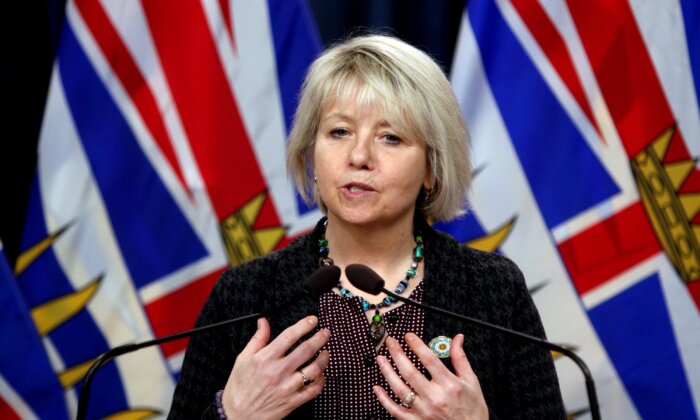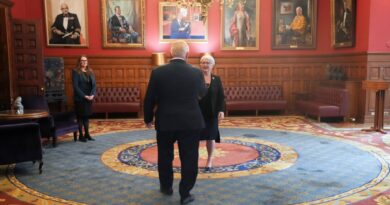BC Supreme Court upholds Provincial Health Officer’s decision to extend vaccine mandate for health workers
A B.C. Supreme Court judge has ruled that the provincial health officer (PHO) was justified in extending the province’s COVID-19 vaccine mandate for health-care workers past October 2023.
Bonnie Henry’s decision was challenged by 15 health-care workers who argued the mandate was too broad and infringed on their charter rights. The court document notes that about 1,800 healthcare workers lost their jobs for choosing not to take the vaccine. Around 35-40 workers were given medical exemptions.
Judge Simon Corval said in the judicial review that he found Dr. Henry’s decision “reasonable.”
He said that when the orders were extended, unvaccinated health-care workers presented “unacceptable risks to vulnerable patients” as well as other health-care workers.
“It was therefore essential to maintain the high level of vaccination in place in the hospital, community care, and residential care workforce, to mitigate the risks to patients and other healthcare workers, and to safeguard the functioning of the healthcare system,” the decision said.
Co-counsel for the health-care workers, Charelene Le Beau, said she was disappointed by the outcome.
“We would have hoped that the requirements to take the COVID vaccine would have been struck down,” she told The Epoch Times in a phone interview.
Ms. Le Beau said that the legal team was happy with Justice Coval’s decision to request Dr. Henry reconsider some requests for vaccine exemption for remote workers.
“One of the many arguments was that the application of the orders to those workers who worked remotely or who worked administratively the orders should not have applied to them. Our argument was that it was overbroad,” she said.
Judge Coval has asked Dr. Henry to reconsider exemption requests for remote workers, saying they do not present a risk of possibly infecting patients or other health-care workers.
“There is an absence of evidence in the record considering this specific issue of vaccination and healthcare workers who are able to perform their roles remotely or without direct contact with vulnerable patients or the healthcare workers who care for them,” he wrote.
In the court documents, the judge notes that the health-care workers argued that the World Health Organization declaration in May 2023 said that the emergency phase of COVID-19 was over, and it was to be treated alongside other infectious diseases.
Additionally, the workers said that by October 2023 other emergency mandates had ended, including masking, capacity limits, and vaccine passports, and that no other province had kept vaccine mandates, aside from some hospitals in Ontario and Nova Scotia.
To defend her decision, Dr. Henry referred to a Sept. 8, 2022, report by Dr. Naomi Dove, a member of her own health team. The report noted healthcare workers were “commonly implicated in COVID-19 outbreaks and clusters in health settings … particularly between colleagues,” according to the court document.
Judge Coval also noted that on Oct. 2023, the COVID-19 Immunity Task Force referenced a pre-print study that found health-care workers to have a higher rate of infection when compared to the general population.
Ms. Le Beau said they were considering the next steps in the case, confirming that appealing the decision was possible.
Charter Rights Infringement ‘Reasonable’
The judge said the orders did infringe on the religious rights of health-care workers, but that it was justified.
“By making the religious petitioners choose between vaccination and losing their jobs, the Orders clearly imposed a substantial burden and cost on following their religious beliefs,” he said.
“However, this infringement was reasonable in the circumstances because, on the record available to the PHO, it did not exceed what was necessary to achieve the essential public health objectives of protecting vulnerable patients, residents, and clients from serious illness and death, and safeguarding the functioning of the province’s healthcare system.”
Judge Coval said he did not agree that other charter rights were violated, including the right to liberty and security of the person.
“The Orders did not compel them to accept unwanted medical treatment, and so did not interfere with their bodily integrity or medical self-determination,” the decision said.
In the decision, Judge Coval said that the law does not give individuals the right to work in a desired job or profession or protect them from being denied employment if they don’t comply with its rules and regulations.





